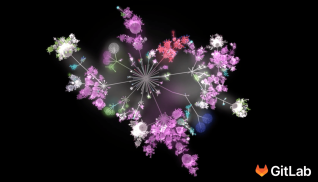Since fewer than 10 GitLabbers convened in Serbia for the first summit in 2013, the annual meeting has nearly doubled in size each year, in tandem with the growth of our company. GitLab is projected to grow from a team of more than 830 today to more than 1,200 by 2020. The attendance list is getting (much) larger and the logistics more complex. We dive into the nuts and bolts of how our summit scales along with our community.
What is GitLab Contribute?
First, let’s start with what it’s not: Contribute is not an incentive trip, it’s not a conference, and it’s not a vacation. Contribute isn’t mandatory, but it is a unique opportunity to bring the minds that power GitLab together in one place. In 2019 the annual summit was renamed to “Contribute” to better reflect the intention of the experience: to build community with our colleagues and get some work done!
But just like Rome (which, unfortunately, is not a feasible host city for 2020), Contribute isn’t built in a day. There are numerous considerations that go into creating a successful program, including the location, logistics, program, and creating opportunities for team members to connect.
Start with the numbers
The planning process always starts with the most crucial number: the projected attendee list. We had roughly 575 folks (including some significant others) attend Contribute 2019, which is consistent with the 86% attendance rate we’ve seen with past summits, and is about double the number of attendees for our Cape Town summit.
Our attendance projections for 2020 are double the 2019 numbers at about 1,186. That number of attendees necessitates moving into a different caliber of hotel that includes enough rooms, meeting spaces, and amenities to host more than 1,200 people at a time in a single place.
Logistics
“The biggest challenge is keeping everybody together,” says Kirsten Abma, our corporate events manager. “For Contribute 2019 it would have been pretty doable to keep everybody together in one place, even if we hadn’t gone to New Orleans, but it’s getting trickier for 2020 and it’s going to get even trickier in 2021.”
When evaluating a destination, Kirsten lists a few key considerations that narrow down the options:
- Cost of transportation: How much does it cost to bring our globally distributed team to one location?
- Visas: Is it simple for most community members to get a visa for this destination?
- Number of hotel rooms: Does the hotel have enough single and double rooms to meet our baseline requirements?
- Meeting spaces: Can we fit 1,200 people in this ballroom? Are there enough breakout rooms for the number of concurrent sessions?
Worldwide, there are very few locations with hotels large enough to accommodate such a big group, and (sadly) popular vacation destinations and old-world cities are generally excluded from the list for this reason.
“Paris, for example, is a great place to go – for excursions there are so many options. It’s really accessible too; there are a lot of flights going to Paris, Europeans can even take trains or drive. But then all the hotels cap at 500 rooms, and we’re asking for 1,000 rooms and for Contribute 2021 we need more than 1,600, so it’s not going to work.” In other words, GitLab won't always have Paris, unfortunately.
Other factors that go into selecting a meeting space include:
- Catering: Can 1,000 people all dine within 1-2 hours? Can the hotel accommodate dietary restrictions?
- Amenities: Does the hotel have a restaurant, a gym, and a bar?
- Lastly, the vibe: Is the hotel crisp and clean? Does it have air conditioning? How do the beds feel? Does the hotel layout make sense?
In New Orleans, there were three hotels that were contenders, but the Hyatt, where Contribute 2019 was hosted, won out.
“We walked into the Hyatt. We went up the escalators and we looked around and we knew ‘Yeah this is it,’” says Kirsten. “We instantly knew this was a great vibe. We knew that if it could fit our budget then it was our number one choice.”
Implementation
There are about 25 locations that are potential contenders for Contribute 2020 and 2021 based on our attendee list and other projections.
The corporate events team works with an agent that brokers contracts with the hotels so GitLab gets the most favorable deal possible. The first step is to send our request for proposals (RFP) to hotels in the locations we are considering. This helps us get the specs on different hotels and can help us whittle down our list to a few locations. Once it's down to between 3-5 locations, the events team begins site visits.
The next step is to reach out to local partners in those locations. Finding a good destination management company (DMC) is crucial to running a smooth event. The DMC has existing relationships with local vendors and can help broker deals on everything from airport transportation, to finding the best excursions, to even the tiniest details that add texture to the whole experience.
“We always try to stay local and really show off the place we’re visiting, its history, things that are significant to that location,” says Kirsten. “These DMCs know everything about everyone and all the local vendors. So when we said we want glow-in-the-dark cotton candy for our masquerade ball in New Orleans, we got it.”
You have to be nimble in order to be a good event planner, and our events team often changes things up at the last minute. Some partners have difficulty adapting to how quickly we update our events to suit the particular circumstances (H/T to Meg Baird with NOLA DMC who really pulled through on these things).
“Our partners have to get used to the speed that we work at, because GitLab moves fast and so does our team. There are some venues that are like, ‘What? You mean tomorrow? No!’ Then we’re like ‘Yeah, let’s do this!’” We are literally changing up everything pretty much every week.”
Activities
Creating a program to keep more than 1,000 people occupied for 4-5 days is one of the biggest challenges of scaling up the Contribute program.
“I think one of the biggest evolutions is that previously we had everybody in the same session, or had broken it up into three or four sessions but the bigger you get the harder that becomes.”
Unconference sessions
The unconference sessions were piloted during the 2018 Cape Town summit, and were formalized into the Contribute program in 2019 because they received such a positive reception from attendees. The unconference sessions offer a break from work-related activities and allow team members to connect through games and shared interests. Many of the sessions bore tangible results, such as building a blog post through a game of broken telephone to organizing more volunteer opportunities for GitLab team members.
Workshops
Formal workshops were introduced this year as a platform for knowledge transfer and exchange. Through these workshops, folks can learn more from their colleagues about different topics they are highly skilled at or use on a daily basis, such as GitLab 101. Other workshops centered around implementing GitLab’s values – in a packed workshop about recognizing and mitigating unconscious bias we made improvements to the GitLab handbook.
“There will be a lot more to choose from going forward and I think that’s a great change for the program as well,” says Kirsten. “There will basically be something for anyone at any time of day during Contribute.”
For Contribute 2020 and onward, we are going to introduce different types of sessions such as AMAs, team building, panels, and additional fireside chats.
Connection
At an all-remote company, the opportunity to get to know people in person is huge and often makes remote collaboration a bit easier. Attendees of Contribute 2019 reflect this sentiment in feedback shared with the corporate events team:
“In a fully remote company, the opportunity to meet people in person reinforces and deepens the relationship between the company in ways that are invaluable.”
“Face-to-face time is incredibly valuable in building strong working relationships.”
Just a quick glance at a colleague's contributions graph illustrates the depth of collaboration at GitLab, but the kinetic energy that propels these contributions is inspiring when we're all under one roof.
Getting new hires to Contribute
“It’s really hard to imagine the size of GitLab, the speed that we work at, and the way that we work together if you haven’t seen everybody together,” says Kirsten. This is why the company decided it’s so important that we do everything possible to bring even our newest team members to Contribute.
At Contribute 2019, there was a group of 60-70 people who essentially signed their contracts and hopped on a plane to New Orleans, and even more who started maybe a week before the annual event kicked off.
In spite of it being a surreal first week, new team members largely felt the experience was more positive than disorienting: “As a completely new hire it was a great way to initially meet all the people I was going to be working with moving forward.”
“That’s why we push for people to literally have their first day during these events because it really builds a stronger working relationship,” says Kirsten. “We don’t want people to miss out on that feeling for nine months or a year.”
The events team deliberately created more opportunities for team bonding with department happy hours and team dinners in New Orleans, and will continue to create more team-building events based on a number of requests that this practice continue.
Iterating our way to 2020
The motto for the corporate events team is live and learn, says Kirsten. Every year we discover new things that can make implementing the event easier from behind-the-scenes (e.g. booking the ballroom for two days to prepare for the keynote) and a better, more engaging experience for participants (e.g. including a break in the middle of the keynote so folks can stretch their legs).
Based on feedback from a post-Contribute 2019 survey, Kirsten also plans on creating more “unplanned planned” events, such as karaoke or game nights in breakout rooms – activities that were always a feature of past summits but were usually self-organized among participants. But feedback from 2019 did show us that in bigger groups people want to know what they’re in for ahead of time.
There were also requests to gamify socialization or randomize seating at meal times so there are more opportunities for community members to meet and connect.
When your baseline doubles each year, you’re going to have some growing pains while scaling such a huge, complicated event. But for Kirsten, seeing happy GitLabbers bounce through the hotel doors on arrivals day and overhearing the inevitable, “I didn’t know you were so tall!” at breakfast makes the effort worthwhile.
“When the keynote kicks off on day 1 of Contribute, you can see everybody in one space for the first time since the last Contribute 9-12 months ago. I was standing near the doors during that moment in the keynote when all the doors closed, and I just looked around. Every time I see that I get goosebumps because it’s like, ‘Oh my goodness, this is so many more people than I had imagined it would look like!’”
If you're wondering where we'll go next, it's still a surprise but keep an eye on our save the date because the announcement should happen soon!



